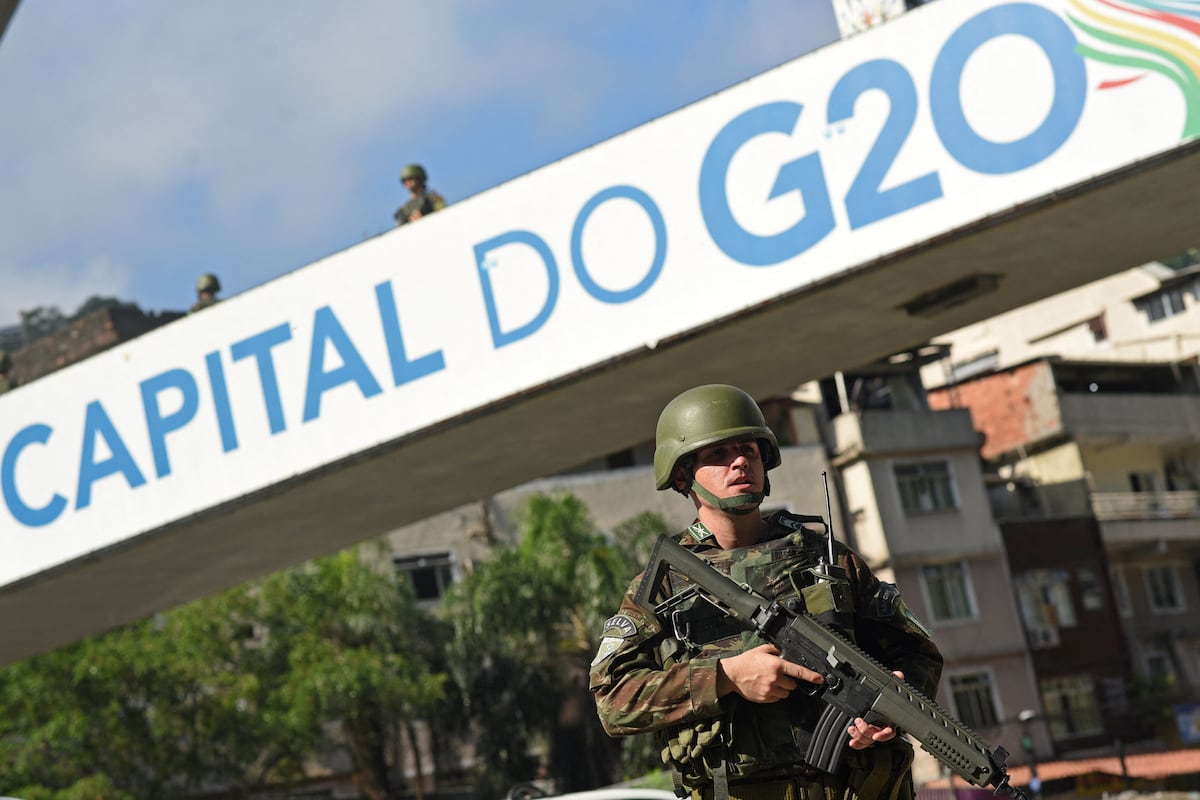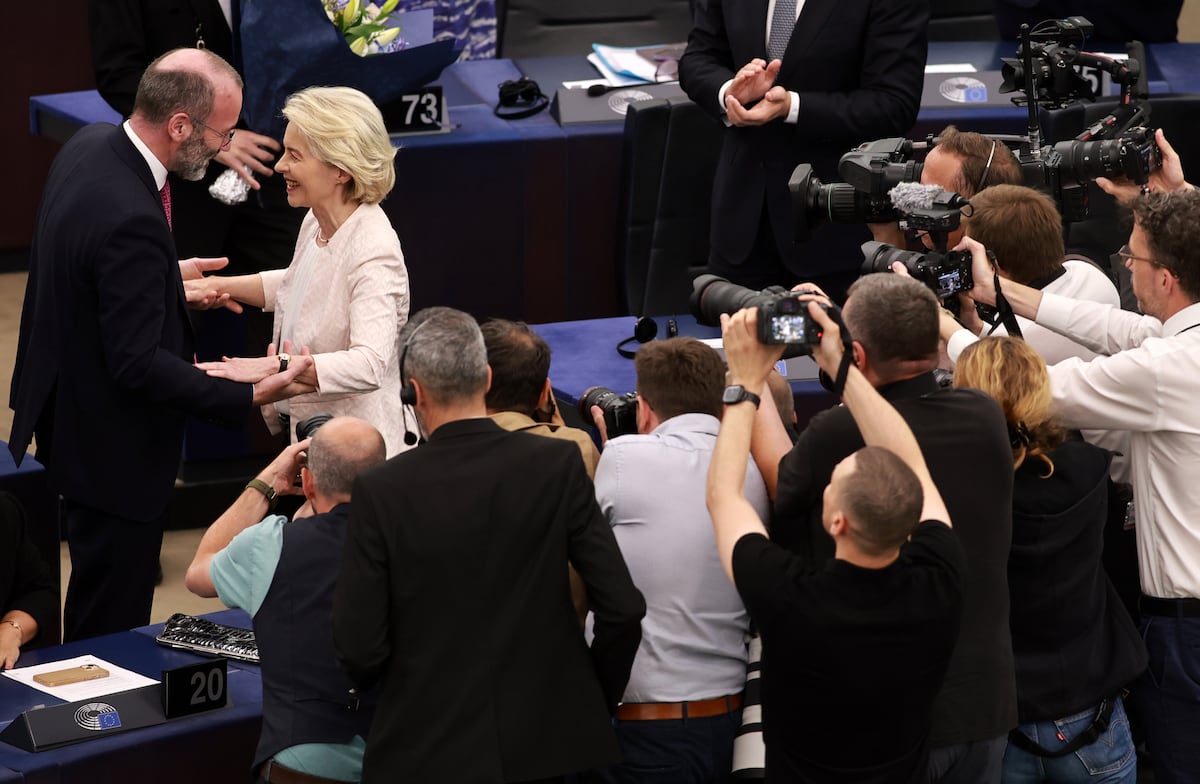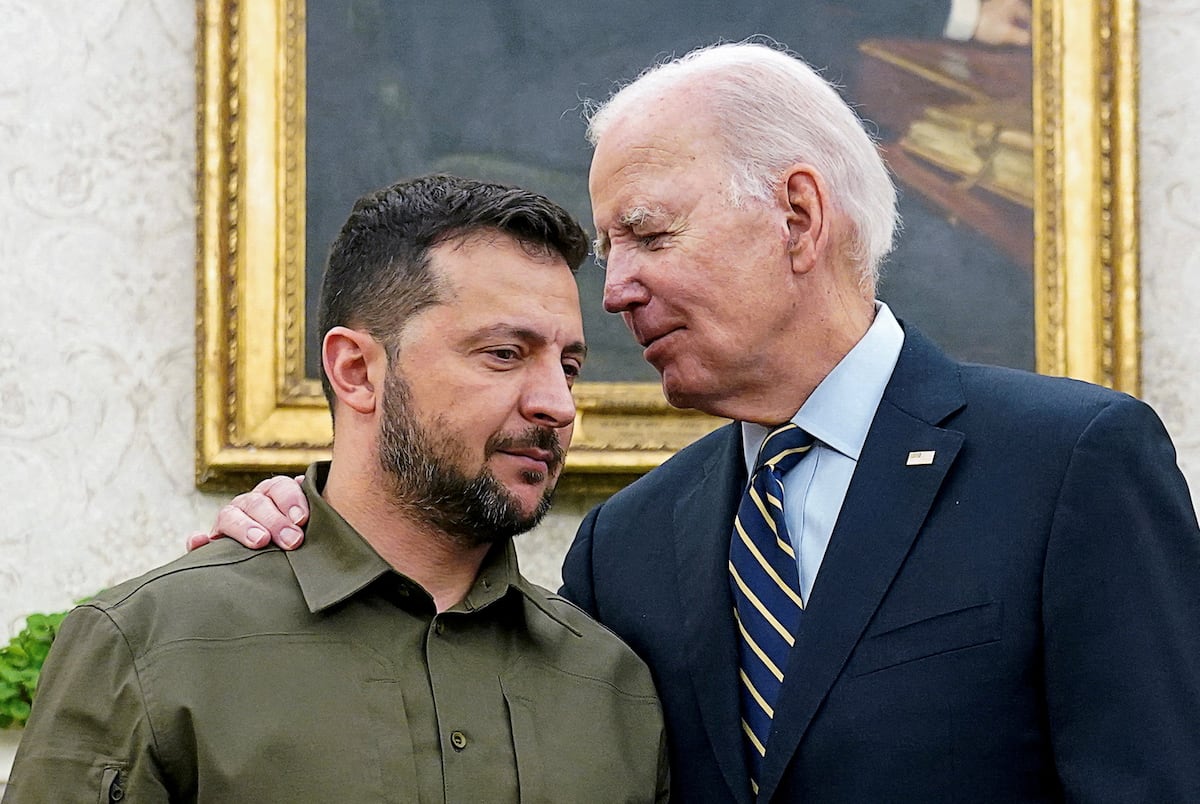Two months before the tsunami that promises to be the second Administration of Donald Trump is unleashed with his inauguration on January 20, Joe Biden and his Government are trying to rescue and protect their foreign policy as much as possible. A policy that the president of the United States aspires to leave as part of his legacy: a leading international power guarantor of the multilateral order and at the head of a dense network of alliances around the world, as reflected in his defense, together with Europe and NATO, of Ukraine facing the invasion of Russia. This same Sunday, Biden authorized kyiv to use long-range US weapons to attack Russian territory, according to US media. A major change in its policy.
The Republican electoral victory on November 5 predicts a strong turnaround. “It is necessary to recognize it: Trump’s isolationist vision is the vision of the world that Americans want for trade, for security, for social issues, for what the United States represents,” considers the founder of the consulting firm Eurasia Group, Ian Bremmer. Its international allies “can no longer depend on that component of American leadership that arose from shared Western values.”
Biden is an exiting president, no longer able to pressure. A “lame duck,” as the figure is known in American political parlance. Or worse yet: “a super lame duck, because his successor is going to apply very different policies than his. And there’s nothing I can do to prevent those changes in a couple of months,” according to Erin Murphy of the think tank Center for International Strategic Studies (CSIS). It is something that other world leaders are clear about: among the first to congratulate Trump were great allies of the Democrat, such as the French president, the very multilateralist Emmanuel Macron, or the Ukrainian head of state, Volodymyr Zelensky. And what happens when another great partner in the traditional order, Germany, has seen the government coalition collapse.
But until January 20, the one who occupies the Oval Office is Biden. And it intensifies its contacts, and its steps, to try to shield this network of economic and security alliances as much as possible. So that Trump, who sees international associations through a commercial prism, cannot solve geopolitical problems by scrapping them. Already last December, Congress approved a law that toughens the conditions for leaving NATO, as the Republican tried to do in the last stage of his first presidency. This weekend, Biden established a secretariat with the leaders of South Korea and Japan to consolidate the trilateral alliance that he achieved during his mandate.
The Russian offensive in Ukraine is another of the major issues that concern the outgoing Administration. For this reason, the Secretary of State, Antony Blinken, traveled last week to Brussels to discuss with the allies the state of the war, stagnant in the best of cases after almost three years and contributions of more than 200,000 million dollars from kyiv’s allies. In their meeting at the White House on Wednesday, Biden insisted to Trump: helping the invaded country is a vital American interest and it is necessary, “throughout the transition and beyond, that Ukraine be left in the strongest possible position in the battlefield so that it can be in the strongest possible position at the negotiating table,” as White House National Security Advisor Jake Sullivan explained this week. Following this reasoning, four days later, Biden’s decision to authorize the use of long-range US missiles on Russian soil was released, a constant claim by President Volodymyr Zelensky that until now had been rejected due to fear of a brutal response from Moscow. .
With no assurance that the Republican Administration will renew assistance to kyiv—rather certainty to the contrary—the Democratic Administration has also confirmed that it will disburse the remainder of the nearly $64 billion in funds approved this year, about 6,000 million, to deliver all possible aid. Washington has alerted European allies that starting in January it will be up to them to take care of most of what the country invaded by Russia needs.
New ceasefire attempt in Gaza
Biden “believes that America’s allies are critical to America’s national security. They make us stronger. They multiply our capacity. They take weights off our shoulders. They contribute to our common causes,” Sullivan also stated. Some of those contacts, however, have made clear the limitations of the Democrat’s position. Last week, Biden met at the White House with Israeli President Isaac Herzog in an attempt to keep up pressure for a ceasefire deal in Gaza that would end the war and allow for a hostage exchange. An objective that has not been achieved in more than a year of war and that runs into an emboldened Israeli Prime Minister, Benjamin Netanyahu, in pursuit of “total victory”, who has restructured his Government to toughen it even more and who is encouraged for Trump’s first foreign appointments: from the pro-Israel senator Marco Rubio at the head of the State Department, to the future ambassador to Israel, Mike Huckabee, who uses the biblical Jewish terms Judea and Samaria to name what the rest of the world knows as the Palestinian West Bank.
This week, Blinken repeated the same pattern that has characterized the American position throughout the war: trying to pressure Israel with threats that it will not comply with. After having given its ally a 30-day ultimatum to bring a sufficient level of humanitarian aid to Gaza, with the warning that otherwise the United States would suspend its military assistance. The deadline came, the aid had not grown, but the State Department decided that Israel was not blocking it. Threat raised.
“Even if Biden were to impose this veto on the shipment of weapons, the Israelis believe that as soon as Trump arrives he would lift it immediately, so it would have no effect,” explains the former US ambassador to Yemen, Gerald M. Feierstein, in a video conference organized by the Middle East Institute in Washington.
This weekend, Biden turned his gaze to the East, during the summits of the Asia Pacific Economic Cooperation Forum in Peru and the G-20 in Brazil, to address, among other things, the future of economic collaboration agreements in Asia, such as the IPEF (Indo-Pacific Economic Framework for Prosperity) from which Trump has already warned that he will withdraw the US.
In Lima he met this Saturday with the Chinese president, Xi Jinping, to try to stabilize the relationship with China as much as possible, the most important and most complex in the world between two strategic rivals that share an economic relationship of 758 billion dollars. annual. Trump insists that, after unleashing a trade war in 2028 with the imposition of tariffs, in his second term he will raise them to 60%.
The Democratic president took the opportunity to pressure China on the aid it provides, in the form of shipments of components, to the war machine in Ukraine and to intervene against North Korea, which has sent around 10,000 soldiers to Russia with the apparent mission to fight in the invaded country. Something that the White House warns could have destabilizing consequences for Europe and the Indo-Pacific. In turn, Xi warned that “Taiwan, democracy and human rights, China’s political system and this country’s right to develop are the four non-transferable lines” in which Beijing will not tolerate challenges, according to Xinhua, the agency. Chinese news official.
Biden also became the first US president to visit the Amazon, on a stop to boast of his credentials against climate change when Trump could withdraw the leading power from international agreements on the matter.
But, at the same time, his trip once again exposed the weaknesses of a mandate in its decline. Although part of Biden’s mission was to shore up ties between the United States and its allies in Asia Pacific and Latin America, his tour has been overshadowed by the longer and more event-filled visit of a Xi Jinping who has made clear China’s growing influence in the region. The Chinese president has inaugurated a megaport in the Peruvian town of Chancay, something that has left “anything Biden says about the strength of ties with Latin America or Asia in the background,” according to Ryan Berg, director for America at CSIS.
In Brazil, Berg says, the authorities offered Biden to stay one more day after the G-20 summit for a state visit, but the president preferred to return to Washington. Who will take advantage of that gap and celebrate that visit on the 20th? The Chinese leader.









